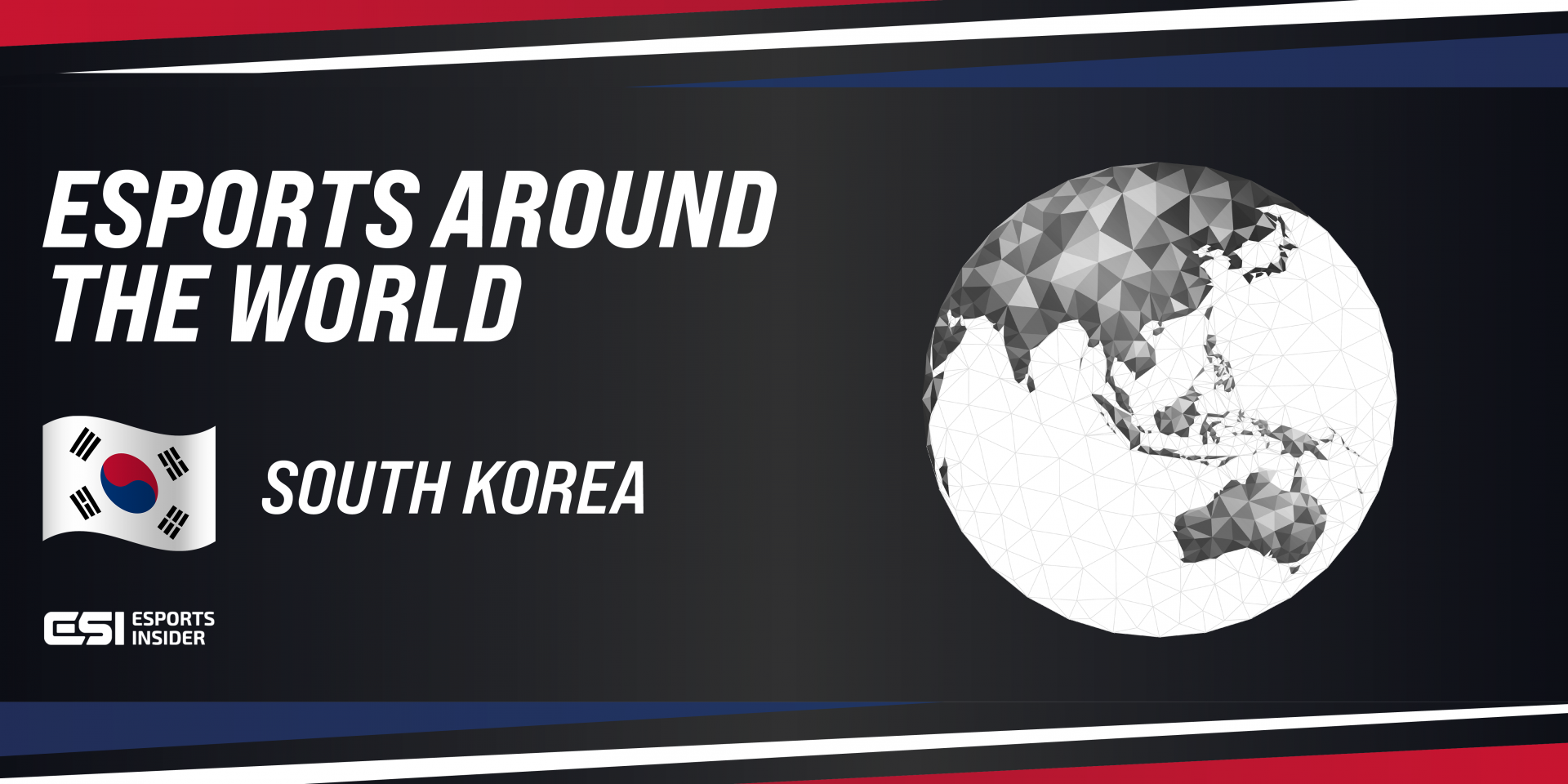Esports Around The World is a series of profiles outlining the esports ecosystem in various countries globally. The series ties into ESI’s international esports business events, which take place around the world.

Introduction
Known for its avid gaming culture, South Korea is one of the biggest esports markets in the world. Whilst video game tournaments have existed since the 1960s, it was South Korea that stood at the inception of esports as we know it today.
The country’s economic growth in the second half of the 20th century resulted in the creation of the Korean entertainment industry, which included gaming. At the end of the 1990s, the South Korean government decided to build a national broadband network, which ushered in the cosmic rise of online gaming in the country. The PC bang (internet cafe) boom in the 90’s helped create a social gaming culture among South Korean youths that laid the foundations for esports’ domestic popularity today.
The main push came after Blizzard’s StarCraft: Brood War was released in 1999 — ideal timing for the title to catch on with Korean gamers. While the Korean gaming community grew rapidly, it wasn’t until cable television channels began broadcasting StarCraft matches regularly that esports started gaining significant attention. Soon, the first esports leagues started to emerge, laying the foundations for global esports culture.
Today, South Korea is recognised worldwide for its government-led initiatives and infrastructure that supports and promotes a grassroots esports development model. The Korean government has invested in multiple esports-specific arenas, including the Busan Esports Arena, the first one outside greater Seoul. According to The Korea Herald, the Korean Culture Ministry and the city of Busan each invested 3 billion won (~£1.88m) in the construction of the Busan facility.
In 2023, South Korea’s appetite for esports is still highly prevalent, despite competition from booming markets such as China in recent years. The country continues to host major international esports events, compete in the ecosystem’s biggest PC competitions and develop an array of talent across multiple games, notably League of Legends. One of the most recognisable names in South Korea — and in League of Legends esports — is legendary player Lee ‘Faker’ Sang-hyeok.

Government Recognition
As the birthplace of esports, South Korea was among the first countries to recognise esports as a legitimate sport, as well as an official job category. Since its recognition in 2000, Korea has played a formative role in bringing esports mainstream attention and regulatory approval.
One of the first acts of supporting esports came from Korea’s Ministry of Culture, and included sponsoring the World Cyber Game Challenge, the predecessor to the world’s first international esports competition, which took place in October 2000. The inaugural edition of the World Cyber Games was held in Seoul with a prize pool of $300,000 (~£229,938), highly impressive for the time. Interestingly, after a three-year hiatus, the World Cyber Games is making its return in 2023.

Notable Tournaments & Leagues
South Korea is home to numerous grassroots esports leagues and local tournaments, alongside multiple top-tier esports tournament organisers such as ESL, Riot Games and Ubisoft who operate regional leagues in the country. Moreover, South Korea previously hosted multiple major esports competitions.
Notable Esports Organisations
Note that this is a non-exhaustive list and exclusion does not signify an org is not notable.

National Associations / Federations
Note that inclusion in this list does not suggest any acknowledgement from ESI of its authority, works or official capacity.
| Korea e-Sports Association (KeSPA) |

Education Initiatives
When it comes to esports education, South Korea is again considered a highly developed market, with both high schools and universities offering esports-focused programmes.
To provide a systematic academic approach, Korean esports organisation Gen.G partnered with the global education company Elite Open School in 2019 to launch the Gen.G Elite Esports Academy in Seoul. The academy offers a US-accredited education complete with a US high school diploma. Educational initiatives started even as far back as 2014, when Chung-Ang University allowed talented esports professionals to apply for a spot at the university’s Department of Sport Science.
Moreover, Gen.G also joined forces with the University of Kentucky and the scholar association International Studies Abroad in 2021 to launch an international esports exchange programme that offers students a four-week stay at Hanyang University or Korea University.
This is a preliminary country profile and will be augmented with additional information over time. If you have any suggestions or feedback for this profile, please get in touch at info@esportsinsider.com. Original article: May 3rd 2022. Last updated: July 25th 2023.
